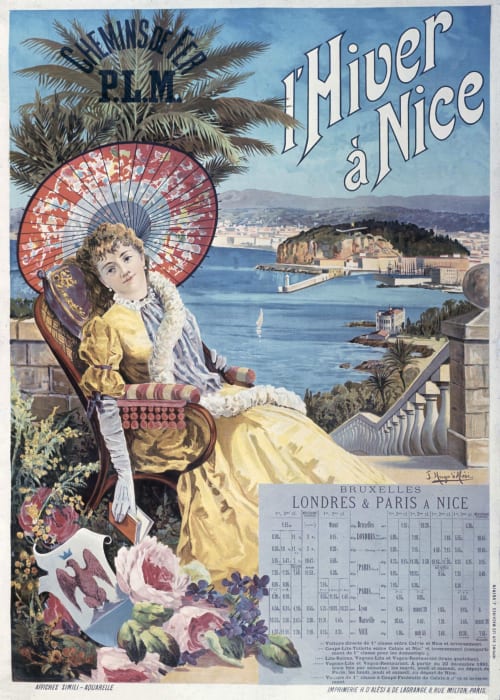"It was nevertheless necessary to realize that "it was war", when on August 2nd, 1914, in the pretty and fragrant city of Nice, the posters of general mobilization were seen and at the same time "the General" with its low and moving sounds was heard", second lieutenant Astruc.
September 12th, 1914. The war that had only just begun was raging on all fronts. Losses were considerable, leading to the evacuation of hundreds of wounded to Nice and the requisition of palaces. Like the Imperial, the Ruhl or the Winter Palace, the Negresco, whose opening splendor still resounds in all memories, is assigned in turn to a complementary military hospital under the number 15. Le Petit Niçois writes: "Many wounded arrived in Nice that night again. A train brought 250 of them at one o'clock in the morning; a second train 250 at 2:45 a.m. and a third train 355 at 5 a.m. Some arrived from the Vosges, others from Belgium, where they took part in the fighting at Neufchâteau, others from the banks of the Somme and the Oise... The number of wounded is already out of proportion to the resources of our military hospitals. And other convoys are announced. How are we going to deal with a situation that is already particularly difficult? It seems to us that it would be time to consider that there are other hotels in Nice than those used until now by the military authority."
The Belle Époque is no more, swept away by the most deadly conflict in contemporary history. Temple of the Nice resort, the Negresco opens a dark page of its history for which the palace is not prepared. “In the kitchens, where we have installed the operating tables, there is already an overflow. Surgeons wade through blood. When they approach the table, the cripples, those who have the strength, start yelling. They struggle until the nurse slaps the ether mask on their faces. They yell in fear, they yell in pain, it goes upstairs, the tea room, the music room, the corridors where the luxury carpets have been removed so that the carts can run better and protect them from disaster. The big hotels: the Majestic, the Ruhl, the Negresco, the Alhambra, the Grand Hotel, the Regina, the Imperial, the Continental, the Royal, the Hermitage had to get used to human misery, amputations, to the spilling blood, to the smells. By August 1914, the hospitals in the North and East had no more room. The last customers packed their suitcases, we piled up the furniture, the Empire chests of drawers, the Louis XV chairs, the 18th century loveseats in the garden, sheltered from the rain and the wind by simple tarpaulins." Raoul Mille, Le Parfum d’Helena, Albin Michel, 2009.
have the strength, start to scream. They struggle until the nurse puts the ether mask on their faces. They scream in fear, they scream in pain, it goes up the floors, the tea room, the music room, the corridors where the luxury carpets have been removed so that the carts can roll better and protect them from the disaster. The big hotels: the Majestic, the Ruhl, the Negresco, the Alhambra, the Grand Hotel, the Regina, the Imperial, the Continental, the Royal, the Hermitage had to get used to the human misery, the amputations, the spilling blood, the smells. By August 1914, the hospitals in the North and East had no more room. The last clients packed their suitcases, the furniture, the Empire chests of drawers, the Louis XV chairs, the XVIIIth century loveseats in the garden, sheltered from the rain and the wind by simple tarpaulins". Raoul Mille, Le Parfum d'Helena, Albin Michel, 2009.
























